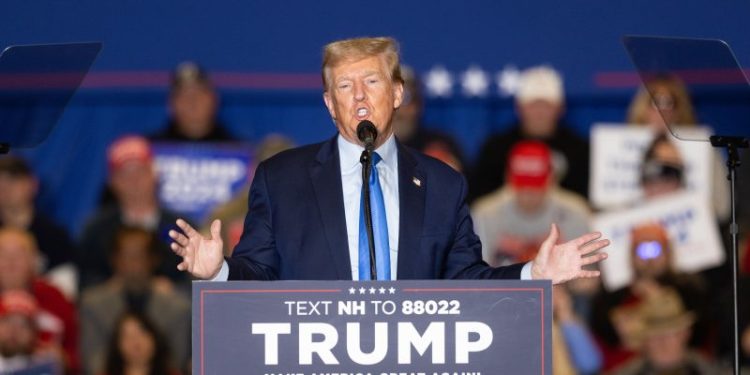“Trump Labeling Foes ‘Vermin’: Outrage Sparks in WH and GOP!
Donald Trump’s recent comments labeled opposition politicians and media opponents as “vermin” have been met with rebuke from both the White House and some members of the Republican party.
Speaking to the press yesterday at a rally in Ohio, Trump controversially referred to those who disagree with him as “vermin”. The comments were part of his efforts to encourage his supporters to vote in the upcoming midterm elections in November, and have been met with criticism from some of his closest party members.
Republican Senators Ben Sasse and Marco Rubio have both spoken out against Trump’s comments, with Sasse saying Trump was inciting hatred and Rubio claiming that they were unacceptable. The White House has also released a statement saying the president’s language was inappropriate.
Trump’s comments are particularly concerning given his vocal stance against political correctness. While some argue that the president is engaging in a constitutionally-protected free speech, others contend that inflammatory language like this has no place in America’s political sphere.
Given the current political climate of divisiveness, it’s Western voters and citizens around the world that will have the final say as to whether such comments are acceptable or not. The upcoming midterm elections will be an important indicator of the current American sentiment, and how much support there is for Trump and his policies.
It’s clear that Donald Trump’s comments have been met with rebuke from the Republican party and the White House, as the use of vermin to describe his opponents is seen as a highly aggressive and inappropriate choice of words. Donald Trump may be protected by the First Amendment, but it’s up to the American people to decide whether his words are acceptable, and will ultimately decide the future of his presidency.
Donald Trump’s recent comments labeled opposition politicians and media opponents as “vermin” have been met with rebuke from both the White House and some members of the Republican party.
Speaking to the press yesterday at a rally in Ohio, Trump controversially referred to those who disagree with him as “vermin”. The comments were part of his efforts to encourage his supporters to vote in the upcoming midterm elections in November, and have been met with criticism from some of his closest party members.
Republican Senators Ben Sasse and Marco Rubio have both spoken out against Trump’s comments, with Sasse saying Trump was inciting hatred and Rubio claiming that they were unacceptable. The White House has also released a statement saying the president’s language was inappropriate.
Trump’s comments are particularly concerning given his vocal stance against political correctness. While some argue that the president is engaging in a constitutionally-protected free speech, others contend that inflammatory language like this has no place in America’s political sphere.
Given the current political climate of divisiveness, it’s Western voters and citizens around the world that will have the final say as to whether such comments are acceptable or not. The upcoming midterm elections will be an important indicator of the current American sentiment, and how much support there is for Trump and his policies.
It’s clear that Donald Trump’s comments have been met with rebuke from the Republican party and the White House, as the use of vermin to describe his opponents is seen as a highly aggressive and inappropriate choice of words. Donald Trump may be protected by the First Amendment, but it’s up to the American people to decide whether his words are acceptable, and will ultimately decide the future of his presidency.










